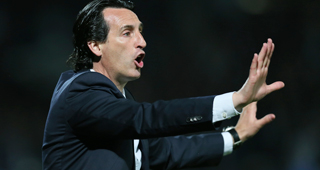“I’ve always talked about us not getting off the island, so it’s great we’ve had coaches coming on to the island to help us,” explained England manager Gareth Southgate in the build up to the 2018 World Cup. Southgate was describing his relationship with Manchester City manager Pep Guardiola, although he could have said the same for Antonio Conte, Jose Mourinho, Mauricio Pochettino, or Jurgen Klopp, as the spine of the national team side came largely from their clubs. Southgate also observed how youth sides attempt to develop play out of the back instead of hoofing it forward like Guardiola’s Barcelona teams.
The tactical flexibility, especially from Conte and Pochettino’s three defender backline, had a significant impact on the shape of England’s side throughout their semifinal run. And while the aforementioned foreign managers are celebrities in their own right, there is a depth of foreign management towards the middle and bottom half implementing an aggressive, pressing style influential on the rest of the continent. The 41-year-old Portuguese manager Marco Silva moved to Everton this summer, his third Premier League club in as many season (Richarlison already calls him one of the best managers in the world). David Wagner’s counter-pressing ideas molded after Klopp played a significant role in Huddersfield Town defying odds by staying in the top division.
The movement of top foreign managers into the Premier League continued this summer, with Unai Emery and Maurizio Sarri dipping their toes for the first time this season. Each was warned by former players and fellow managers about the difficulty of adapting to the pace and energy of the English style. Manuel Pellegrini, who returns to the league he once won at City, sent his warning to Guardiola about the difficulties of England when he left the club in 2016. At least Premier League newcomers Nuno Espirito Santo and Slavisa Jokanovic, leading their promoted Wolves and Fulham sides respectively, had a year in the Championship to get a taste of the frenetic style.
It all counts. Tottenham, United, City and Liverpool were represented as expected in England’s 3-5-2 starting formation from their semifinal loss to Croatia. But alongside them were Leicester City’s Harry Maguire and Everton’s Jordan Pickford. Pickford became the most expensive British keeper when he was signed from a relegated Sunderland side by then Everton manager Ronald Koeman last season. Koeman recalls the Pickford being “impetuous” but immensely talented, and the manager credits his goalkeeping coach for educating the keeper. Meanwhile, Claude Puel succeeded in keeping Maguire away from Mourinho in this summer window.
The development of English players under flexible systems takes on a newfound intensity as the side that won the U-17 World Cup age into their senior sides (that roster reads similar to the senior side, filled with players from Chelsea and Manchester City). 18-year-old midfielder Phil Foden, the star playmaker of the side, is on pace for senior minutes under Guardiola this season. In explaining to the diminutive 5-7 Foden that he should avoid physical challenges and instead be “quicker in the mind and the feet” to find solutions, Guardiola’s coaching shows another point of view in how to succeed in a physical league. Of Foden’s Community Shield performance last weekend, Rio Ferdinand said that City didn’t miss David Silva or Kevin De Bruyne in midfield. Starring alongside Foden in the U-17 World Cup, and starting opposite him last weekend as Chelsea’s left winger was Callum Hudson-Odoi. Likewise, Sarri earmarked a place for the 17 year old winger in the senior side this season.
There are many reasons why Guardiola, Klopp, Sarri, Pochettino, Mourinho, and Emery are attracted to the Premier League, beginning with resources and a global audience. The self-reinforcing cycle of the best tacticians at the club level allows the national side to play a modern, flexible style. In discussing his excitement at working with Pellegrini at West Ham, Jack Wilshere said that the World Cup changed the perception of English football in showing how the country could compete with other sides on a technical level. Guardiola proclaimed his excitement of being able to learn from how Sarri adapts to the English game, saying that his possession-based ideas will improve the rest of the league. England’s developmental rethink began at the grassroots, academy level, culminating into winning the U-17 World Cup. But equally important was the influx of ideas at the very top.



